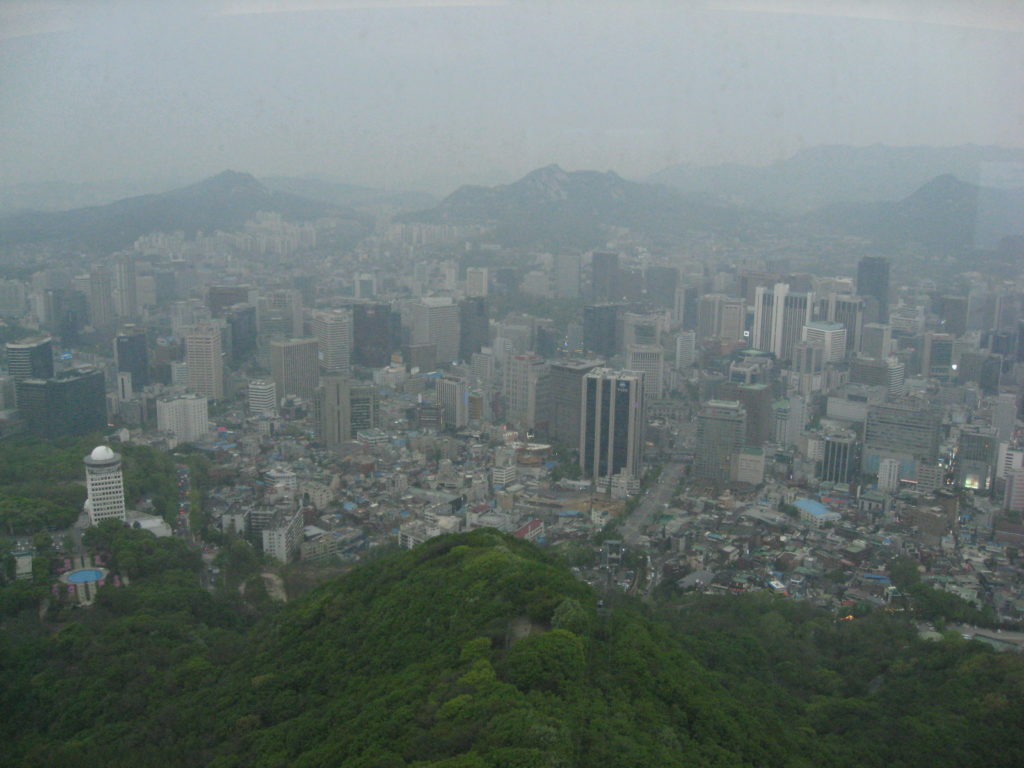The Peninsula
Fine Dust Continues to Cost South Korea

This briefing comes from Korea View, a weekly newsletter published by the Korea Economic Institute. Korea View aims to cover developments that reveal trends on the Korean Peninsula but receive little attention in the United States. If you would like to sign up, please find the online form here.
What Happened
- Earlier this month, South Korea announced new efforts to help combat the country’s worsening fine dust problem.
- Measures include restrictions on private vehicle usage, reduced work hours at construction sites, and even the declaration of temporary holidays when the dust reaches a “serious” level.
- Last week Seoul, Incheon, and the surrounding Gyeonggi Province were hit by the first dust wave of the season.
Implications: Since South Korea has yet to identify the source of the fine dust particles, some observers have asked whether the ongoing measures are effectively targeting the problem. The government deployed 700 vehicles to clear the streets of dust and have been actively prohibiting the operation of diesel vehicles in cities with more than 500,000 people. While some of the dust is generated by pollution in South Korea, it is also believed that some particles come from the Gobi desert in Mongolia and China, and some researchers have said 50-60% of the dust is air pollution from China blown across the Yellow Sea. The government has implemented several domestic procedures but has taken minimal steps in coordinating with China.
Context: Regardless of its origin, air pollution is causing massive health and economic consequences for the country. Of the top 100 most polluted cities in OECD countries, 44 were in South Korea, and in 2017, 17,300 deaths were attributed to air pollution. Furthermore, the new protocol of declaring temporary holidays may dampen businesses’ output due to lost work hours. The dust also poses significant financial concerns for residents. An effective, single-use air filtration mask can cost up to 20,000 won (~$17), which can quickly add up to substantial expense for South Koreans.
Korea View was edited by Yong Kwon with the help of Soojin Hwang, Hyoshin Kim, and Rachel Kirsch.
Picture from user taylorandayumi on flickr
